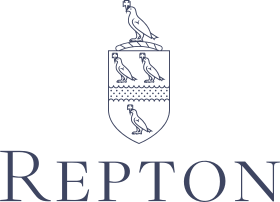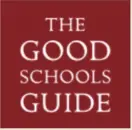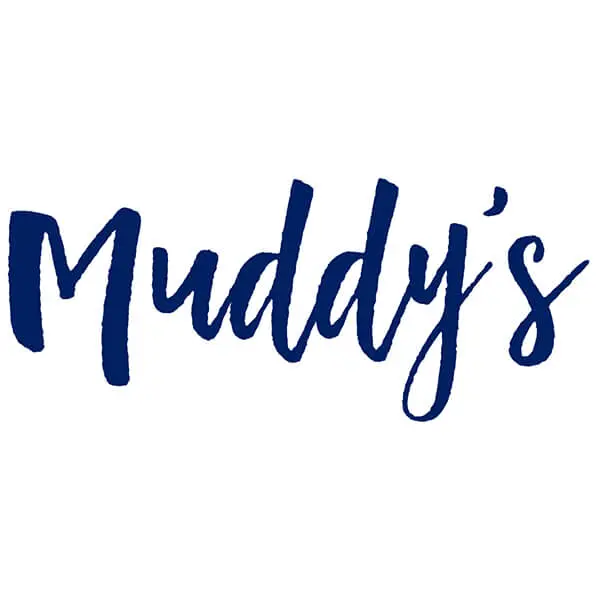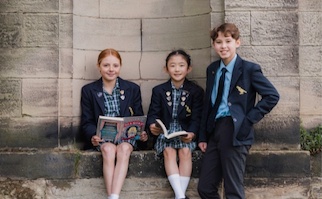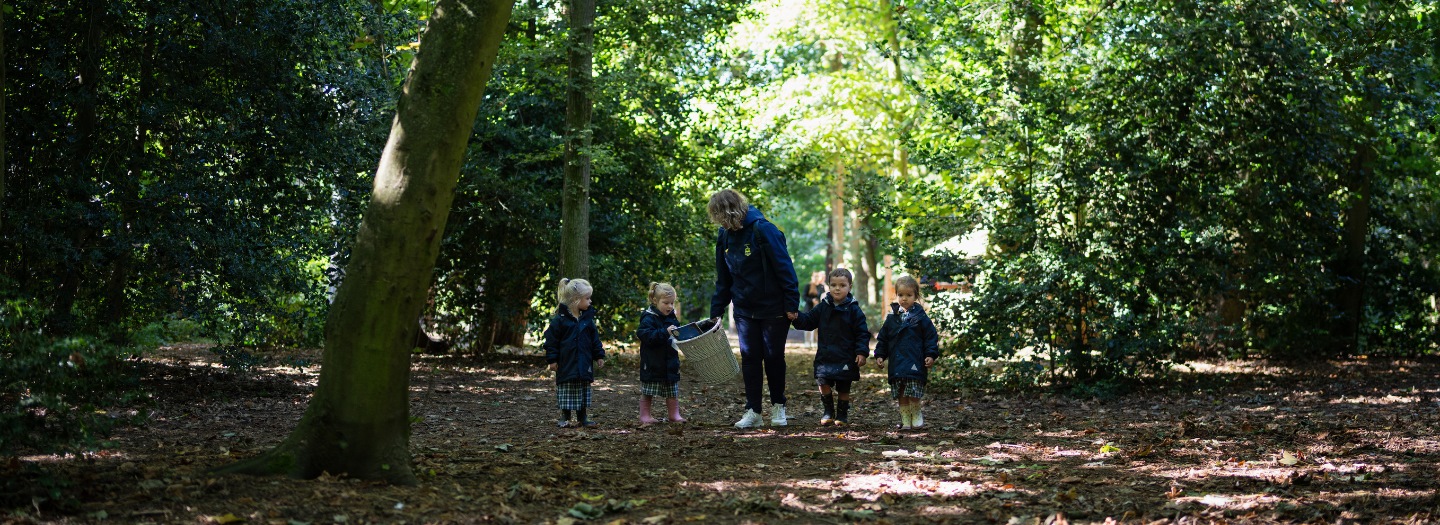
IS THERE A BEST AGE TO START PRIVATE SCHOOL?
For many families exploring private education, one of the first questions that arises is ‘what is the best age for my child to start private school?’
There is no single answer to this question - each family’s circumstances, and each child’s needs, are unique. However, understanding the common entry points, the factors that influence this decision, and the potential benefits at different ages can help families make a more informed choice.
Typical Ages for Starting Private School
Private schools offer multiple entry points, allowing families to select the stage that aligns best with their child’s development and their own educational priorities. Common entry ages include:
-
Age 3 (Nursery/Early Years) – Many private schools, including Repton Prep, offer a nurturing introduction to formal education through Early Years Foundation Stage (EYFS) programmes.
-
Age 4 (Reception, Pre-Prep) – A key time to begin more structured learning and prepare for prep or junior school environments.
-
Age 7 (Year 3, Prep) – The start of a next key stage. Some who have attended an infant school may choose to be privately educated from here.
-
Age 11 (Year 7, Prep) - Some join at 11 to extend a prep education by a further two years before going to senior school. It is an ideal time to introduce flexible boarding.
-
Age 13 (Year 9) – A traditional entry point for senior schools. Often, pupils who have been flexi-boarders will consider full boarding options to maximise their school experience.
Apply to Repton Prep (Age 3-13)
-
Sixth Form (Ages 16+) – Some pupils join at this stage to benefit from strong academic support and university preparation.
At Repton School and Repton Prep, pupils can join at various stages, with flexible entry options designed to support different needs and backgrounds. More information is available through our Admissions Overview.
Factors to Consider When Applying
Several important considerations can help guide the decision about when to start private school:
- Academic Readiness: Some children thrive in academic settings from an early age, while others benefit from a little more time before transitioning to more structured environments.
- Social and Emotional Development: Confidence, independence, and social adaptability can influence how well a child settles in a new school setting.
- Family Circumstances: Factors such as relocation, career changes, or a desire for more specialised learning opportunities can prompt a change in schooling at different stages.
- Boarding Readiness: If considering boarding, a child’s independence and comfort with being away from home are key indicators of readiness. Learn more about life in a Boarding House.
Comparing Private School Entry Stages
Nursery (Age 3-4)
Advantages: Establishes routines early, builds foundational skills, and provides access to smaller class sizes and tailored learning approaches.
Considerations: Some children may benefit from staying in a familiar nursery or home environment for longer.
Prep Years (Ages 7–11)
Advantages: Allows pupils to join before major exams and settle socially and academically. Older joiners may enjoy flexible boarding to establish independence and confidence.
Considerations: Pupils may need time to adjust if transferring from a different type of school environment.
Senior School Entry (Age 13)
Advantages: Aligns with a key stage transition and often marks a fresh start, with strong pastoral support.
Considerations: May require entrance assessments and adjustment to a new peer group and structure.
Sixth Form Entry (Age 16)
Advantages: Ideal for pupils seeking a strong academic programme, university preparation, and a new environment.
Considerations: Less time to build long-term friendships and participate in extracurricular programmes.
For families considering entry at age 13 or 16, it's also worth noting that these stages coincide with key scholarship opportunities. At Repton School, scholarships are available at these entry points to recognise and support exceptional talent in a range of disciplines, including Academic achievement, Art, Design Technology, Drama, Music, and Sport. These awards celebrate individual excellence but and offer scholars the opportunity to thrive in an environment that nurtures their passions and extends their potential.
Private School Admissions Process
Private schools typically align their admissions process with the UK academic year, but individual schools may have slightly different structures. Open days, tours, entry assessments, interviews, and trial days are common parts of the application process, helping determine suitability and ensuring a good fit for both the pupil and the school.
At Repton School and Repton Prep, our approach is personalised. We consider each child’s readiness and offer tailored admissions support to ensure a smooth transition.
Tips for Deciding the Best Age for Private School
- Visit prospective schools to understand their ethos and see how pupils at different stages are supported.
- Speak with admissions teams about entry points and individual support options.
- Consider both short and long-term goals think about academic ambitions, social development, and extracurricular opportunities.
Families are encouraged to book a visit to Repton or contact our admissions team to discuss what might work best for their child.
Finding the Right Age to Apply for Private School
There is no one-size-fits-all answer to the question of when to start private school. For some children, early entry offers a head start in learning and confidence-building. For others, a later transition brings fresh motivation and focus. The key is to consider the individual child’s needs, family circumstances, and long-term goals. With flexible entry points, supportive environments, and a commitment to pupil wellbeing, Repton provides opportunities for pupils to thrive whenever they begin their journey.
FAQs
What is the earliest age a child can start private school?
Many private schools accept children from age 3 into Nursery or Early Years programmes. Repton’s Pre-Prep welcomes children from this age, providing a gentle and nurturing start to education.
Is it better to start private school as an infant?
Starting early can provide consistency and early exposure to personalised learning approaches. However, joining later (such as in Year 7 or 9) can bring new opportunities and mark a fresh beginning. It depends on what suits the child best and family circumstances.
Can a child transfer to a private school at any age?
Yes, many private schools offer flexible entry points, and transfers can be arranged throughout the school year. Families should consider how the change might impact the child academically and socially, and plan accordingly. Children with a particular talent may want to take advantage of scholarship opportunities on offer at Repton at ages 13 and 16.

